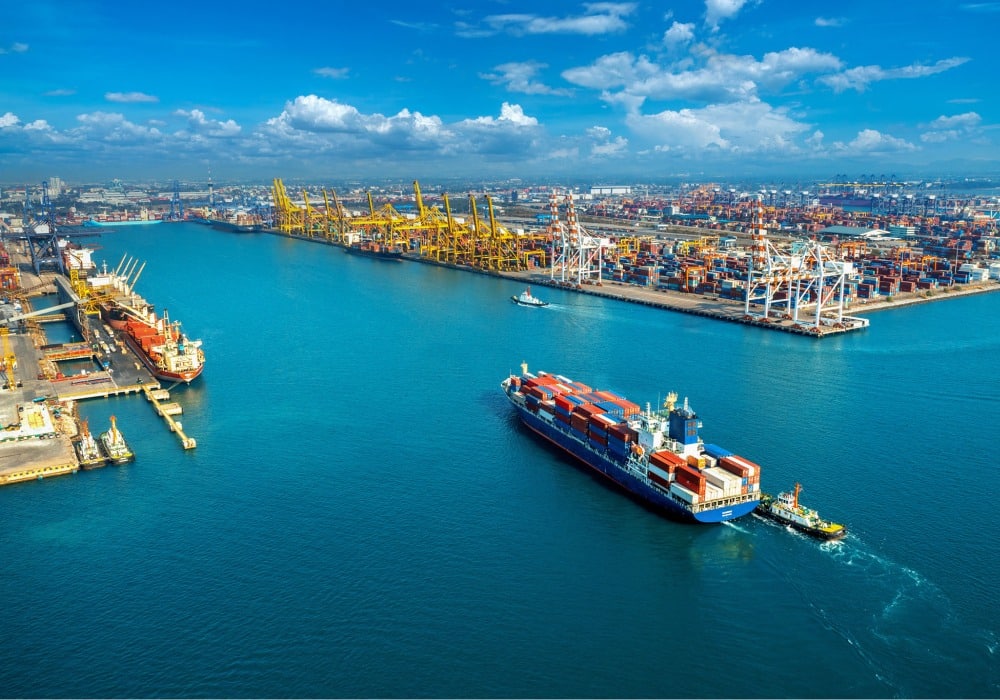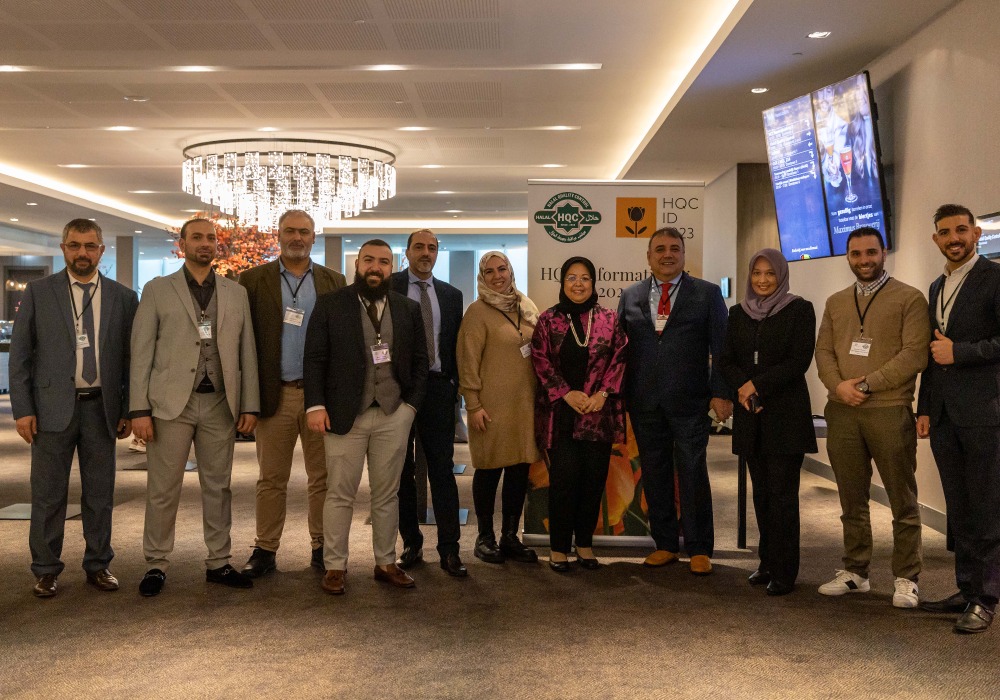The Present.
From its humble origins, the Halal Quality Control Group has broadened its reach from a single hometown to over 13 nations, extending tailored services to each region with a dedicated focus.
Today, we stand as one of the global leaders in Halal certification, fuelled by a vision to bring simplicity and accessibility to the Halal industry for all who seek it.
We serve a wide spectrum of sectors, offering them vital solutions to connect with a burgeoning industry they might not have been able to access otherwise.
But turning a vision into reality hasn’t been a smooth journey. It called for mastering public relations, gaining recognition, securing accreditations, forming alliances, building market trust, and establishing efficient systems.
Additionally, it needed a dedicated team, the development of remote branches, and a strong leadership driving it all.
Over a span of four decades, we’ve grown from a modest company overseeing slaughtering plants to a diverse group that provides solutions across multiple sectors, ensuring the flow of trade continues unimpeded.
As of 2023, the landscape has become a thriving ecosystem, hosting over 85 operational Halal certification bodies, 6 accreditation bodies, 10 regulatory authorities, 10 standardization bodies, along with Halal training academies, food consultants, and thousands of Halal-certified companies.
Moreover, the global Halal food market is witnessing an explosive growth, projected to reach a staggering value of $2.55 trillion soon and potentially soaring to $4.1 trillion by 2028.
And so, dear reader, begins our compelling tale.
Origins.
Our journey takes off in 1983, a year when the export of meat products from Europe to the Middle East was on a meteoric rise.
However, with every boom comes a challenge, and ours was no different: there was a dire need for parties who could implement Halal audit and supervision systems in many European manufacturing plants.
The Control Office of Halal Slaughtering was born in this time of need, appointed by several Gulf embassies to navigate this pressing barrier. The company established its roots in the diplomatic city of The Hague, and thus, became a pioneer in The Netherlands.
As we were focusing on meat products for Halal certification in the Gulf region, a new wave was rising in the distant shores of South-East Asia.
From the late 80s to the early 90s, these countries developed their own Halal certification bodies to oversee a broader range of production activities.
In the age of globalization, these bodies reached out for cooperation with foreign Halal certification entities to ensure the supply chain remained unbroken. Gradually, Halal certification extended its scope beyond mere meats – it now enveloped processed foods, flavors, dairy products, colorings, and even cosmetics.
It was during this period of expansion that we established Halal Quality Control as an extension to the Control Office of Halal Slaughtering.
While the latter continued to evolve its systems for slaughtering plants, Halal Quality Control set to work on everything beyond.
As local authorities began enlisting recognized Halal certification bodies, Halal Quality Control found its name among the first on the list.
This recognition paved the way for a surge of new players in the field, fostering a competitive landscape for Halal certification services.
And so, our story continues.
1980s

The Foundation
Control Office of Halal Slaughtering is established, serving the meat sector to facilitate the flow of trade between nations.

Approval in the Gulf Region
As one of the first Halal certification bodies in Europe, a recognition was granted to supervise manufacturing plants producing Halal goods.

First Halal Shipment Certificates
Halal Shipment Certificates were introduced to the industry, being recognized as a highly valuable document to facilitate trade and required by various embassies to be legalized.
1990s

A New Beginning
Halal Quality Control was is established to serve all industries beyond slaughtering plants.

Recognition
Recognitions were awarded to Halal Quality Control as an acting foreign Halal certification body by important players such as LPPOM MUI, JAKIM, MUIS, and the SFDA.

Service Expansion
More industries were now able to be Halal certified by Halal Quality Control because of its focus on implement Halal compliance systems at manufacturers not classified as slaughtering plants.
2010s

An Era of Accreditation
In the year 2013, Halal accreditation became a topic not to be missed in the Halal certification industry. This was needed to regulate Halal certification bodies and to uppen the standard for providing Halal certification. From there on, Halal Quality Control has been among the first bodies to have received accreditation from the Gulf region.

Creation of an Ecosystem
As the accreditation era came into play, so did new requirements. Whereas it would have been possible to certify all types of products in any country, restrictions started to apply based on the region you worked in. For example, processed meats products manufactured in France could only be certified by a Halal certification body based in France. This is where a new vision to expand our services more local has been established.

A Focus on Education
As more Halal standards became a requirement to be adhered to by both Halal certification bodies and manufacturers, a new necessity had to be created: Halal Training systems for manufacturers. This education is of importance to understand the complex set of requirements which may differ from region to region.
2020s

HQC Events
www.hqc.events is created, dedicated to organize and host conferences, assemblies, and seminars for a various target audience.

HQC ID
The Halal Quality Control Information Day is launched to provide a yearly overview of HQC’s progress, followed by a classical training course. This event is by invitation only and seeks to reach out to food industry professionals, manufacturers, governmental authorities, embassies, and speakers.

Going Digital
We are naturally not born to sit still. And providing solutions has been at our core since the beginning. We strive to have projects running every year for a better future together. We are investing in digital and paperless solutions, for ourselves and our customers. Following our LinkedIn page or newsletter updates will tell you about our ongoing projects.
The Future.
Thinking Forward.
Nobody can predict the future, but we can certainly tell you that we plan to keep serving our customers and the community by having a forward-thinking culture and by being committed to continuous improvements.
Digital Environments.
Our company seeks to go fully digital by the year 2024, eliminating e-mail traffic and unnecessary printing work, saving both paper and the environment.
In addition to that, our electronic portal will be upgraded to enhance user interface and provide more options for you than already was available.
Our issued Halal Certificates are going digital, too.
And an exciting Electronic Matrix is in the making, making documentation processes easier to all.
The all-new HQC E-Portal, launching soon.
HQC Events.
In an era where attention span is at an all-time low, we try to gather people together by hosting a variety of events.
Whether it is education, an economic conference, networking, or awareness, we keep doing our best to deliver the best experiences.
Get to learn more at www.hqc.events
Security and Safeguarding.
One of the downsides of being widely known in the market is the risk of counterfeit. We strive to find creative solutions on how to validate Halal certificates to protect the consumers and businesses.
Additionally, we utmostly care about our electronic portal being secured for all our users. And we continue to add security measures for your protection.
Ahead of the Curve.
We understand that the Halal industry is continuously changing, but that does not mean a barrier cannot be avoided.
We start to detect changes early and adapt quickly so that no major problems may occur. By having a proper set of accreditation, it is safeguarded that barriers remain at a minimum.
